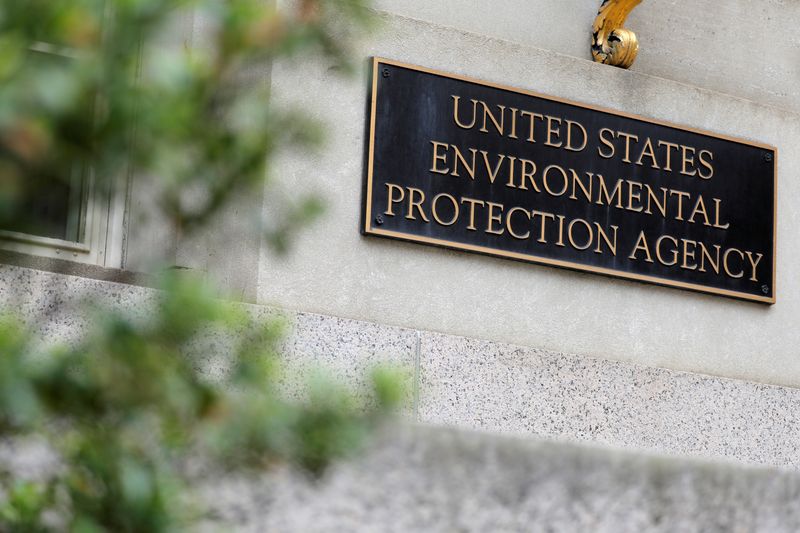WASHINGTON (Reuters) - The U.S. Environmental Protection Agency on Friday announced two new measures aimed at reducing climate-warming chemicals used in refrigerators and air conditioners that can help the U.S. meet its goals to halve its greenhouse gas emissions this decade.
The agency issued a final rule that restricts the use of gases known as hydroflourocarbons, or HFCs, used in 40 types of imported or domestically-manufactured foams, aerosol products, and refrigeration, air conditioning, and heat pump equipment, setting compliance dates from 2025 to 2028.
HFCs are significantly more potent than carbon dioxide in contributing to global warming.
The EPA also issued a proposal that aims to improve how HFCs are managed and reused, setting requirements for repairing leaky equipment, rules for using reclaimed HFCs and leak detection rules for large refrigeration equipment.
The two regulatory actions come after the EPA issued a final rule in July phasing down the use of HFCs by 40% below historic levels from 2024 to 2028.
The Senate voted 69-27 in September last year to ratify the global Kigali amendment to the Montreal Protocol that calls for the phase-down of HFCs.

Congress also passed the 2020 American Innovation and Manufacturing Act, which called on the EPA to deliver plans to reduce the production and consumption of climate-damaging chemicals by 85% by 2036.
White House National Climate Advisor Ali Zaidi said by ratifying the Kiangali amendment, a rare environmental treaty that has bipartisan support, and executing steps to meet its targets, the U.S. is positioned "to lead on innovating and manufacturing alternatives to super-polluting HFCs."